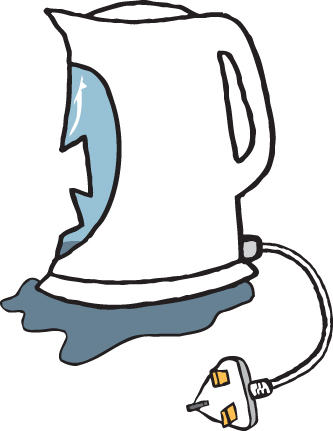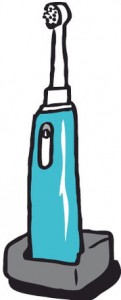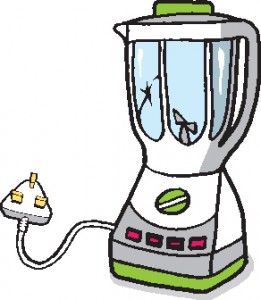Guest blog by Tamsin Stevens, WEEE intern
 For those of you in your first year of University, can you believe how quickly the year has gone?! With exams just around the corner, it will soon be the long summer break you’ve all be waiting for! For those of you who will be moving out of halls of residence after exams, it is likely that you will find you have many items and appliances that are either broken or no longer of use to you. This year, an opportunity is being provided for students in current halls of residence to recycle broken or unwanted electrical appliances.
For those of you in your first year of University, can you believe how quickly the year has gone?! With exams just around the corner, it will soon be the long summer break you’ve all be waiting for! For those of you who will be moving out of halls of residence after exams, it is likely that you will find you have many items and appliances that are either broken or no longer of use to you. This year, an opportunity is being provided for students in current halls of residence to recycle broken or unwanted electrical appliances.
WEEE is currently a hot topic of sustainability, due to its huge potential to contribute to a circular economy, enhance resource efficiency and reduce landfill pressure. Through my waste management internship, I’m working with Carolyn Couch, the University’s Waste and Recycling Manager, on trialling out a WEEE project for halls of residence, due to the abundance of WEEE which was disposed fro m halls last year into general waste bins. Not sure what WEEE is? Carolyn explains all here. Some types of WEEE contain hazardous substances, including cadmium, lead, mercury and certain flame retardants, which if inappropriately managed can cause detrimental impacts on the surrounding environment and human health. Additionally, modern electronics often contains scarce and expensive resources, including potentially critical raw materials such as silver, gold, palladium and copper. By collecting WEEE separately, these materials can often be extracted and recovered which can then be recycled into new electronic products, meaning that there is less pressure on extracting raw materials from the ground.
m halls last year into general waste bins. Not sure what WEEE is? Carolyn explains all here. Some types of WEEE contain hazardous substances, including cadmium, lead, mercury and certain flame retardants, which if inappropriately managed can cause detrimental impacts on the surrounding environment and human health. Additionally, modern electronics often contains scarce and expensive resources, including potentially critical raw materials such as silver, gold, palladium and copper. By collecting WEEE separately, these materials can often be extracted and recovered which can then be recycled into new electronic products, meaning that there is less pressure on extracting raw materials from the ground.
 The Waste and Recycling team are aiming to collect as much WEEE as possible and need your help. When moving out of halls, please bring any WEEE down to reception instead of putting it in the general waste bins. Any electrical items (in working condition or broken) with a plug or batteries will be eligible for recycling and may help contribute to improving the University of Southampton’s waste management systems. Furthermore, the data collected from this trial project will be compiled into a project report and the success of this project may influence permanent WEEE collection from halls of residence in the future!
The Waste and Recycling team are aiming to collect as much WEEE as possible and need your help. When moving out of halls, please bring any WEEE down to reception instead of putting it in the general waste bins. Any electrical items (in working condition or broken) with a plug or batteries will be eligible for recycling and may help contribute to improving the University of Southampton’s waste management systems. Furthermore, the data collected from this trial project will be compiled into a project report and the success of this project may influence permanent WEEE collection from halls of residence in the future!